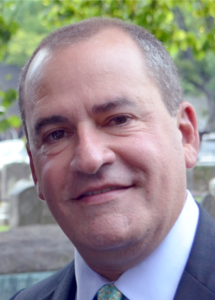Nurturing and maintaining an effective and forward-thinking, mission-focused relationship with your Board – and ensuring that board synergy is healthy and productive – are among the most important responsibilities of a school’s top leadership.
We chatted with Billy Yerman, longtime board member of Baltimore’s Garrison Forest School and of other civic organizations, about what it takes to be an effective board member and to work with a head and school leadership to guide an institution.
Kalix: You’ve served on an independent school board for 12 years and community boards for several years. Have board responsibilities evolved, and if so, in what ways?
Billy: When times become challenging, it becomes more critical to go deeper into the skill sets of the board. Often, it requires you to evolve your thinking about what types of board members you’re looking for – subject-matter expertise, community leaders, etc. Depending on the school’s needs, this will vary. But it’s important to be aware of where you are in the cycle of the school to know what kind of board member you need to recruit. The world has clearly changed over the last ten, 12 years – demographically and financially – and having the expertise for the staff to pull from is crucial.
Kalix: What are some things that heads of school and board recruiting committees might want to look for?
Billy: Board members need to be strategic and community-centered and have spheres of influence. They are your school’s ambassadors and have to have the ability to think strategically, no matter what field they are in. I believe it is more important than making sure you have a lawyer on your board to review documents.
The board is your sales force and needs to be on the street every day, talking about how wonderful your school is – not about the challenges it has. Challenges can be dealt with but everything should be focused on the good and why your child belongs there, through good times, bad times, head transitions.
Kalix: In your experience, what is the most important/critical responsibility of school board members today?
Billy: Financial, cultural and demographic sustainability. Your sustainability committee shouldn’t be solely focused on the Profit/Loss levers. It has to be about looking innovatively at all areas of the school, and maybe some unpopular ideas, to make sure you can sustain the school’s mission and culture well into the future. Boards need to be able to talk openly about and debate issues in a safe context.
Kalix: How can you take innovative thinking and move it into action? A lot of board members are used to doing this in the business world, but on a school board, that process can slow down dramatically. How can board members effectively speed up that cycle?
Billy: If you are a volunteer, you have your life, job, family and volunteer role. That’s what good citizens do. How do board members stay engaged during that three-month period between meetings or pre-board meeting committee meetings? That’s probably not enough. Is there a call that can happen once a month with the appropriate staff and maybe the committee chair to talk about the initiatives the board has approved? Take it a little more outside the committee structure and consider creating an easier way for the board to hold staff accountable for the initiatives that come out of board meetings. It’s not a scary process. Staff members in charge of an initiative should be in meetings with board members for accountability and information-sharing. As a board member, I am looking for that deeper engagement. There’s that great quote: ‘Innovation without execution is hallucination.’
Kalix: You raised three daughters across a collective 40 years at Garrison Forest School. How do separate your role as a parent from your role as a board member?
Billy: When you agree to take on a board role, you have to be very clear that your role as parent is subjugated to your board responsibility. All of your decision making needs to be around what is best for the school. Your family thinks you know everything that is going on, and everyone else thinks you know everything! That can present difficulties about how much you can share. You may not always agree with the decision your fellow board members are making, but I do agree with once the decision is made, every board member needs to fall in lockstep.
Kalix: You’ve served with different heads of school. What is the most essential thing board members can do during leadership transitions and to support heads of school?
Billy: Building a personal relationship with the new head is critical. Be mindful and wary of the information that is coming their way. It’s going to be coming from every direction. Try to provide the ear and guidance to assist the new head in evaluating the information that is coming in. It’s all subjective and will have a bias, but the board members who have been around for a while, those are the ones that need to get to know the new head well and just be there as a guide and assistant to help them navigate.
Even if you don’t naturally connect [with a head or board leader], you still need to continue to pursue where you can find common ground to work together. Sometimes you have healthy disputes, but you need to go deeper to generate discussion. Building the personal relationship allows you to have complex, challenging discussions over initiatives.
 About Billy Yerman
About Billy Yerman
Billy Yerman has significant nonprofit experience, with an emphasis on K-12 education. He brings expertise from a 30-year business career in real estate and title insurance management. His board leadership includes 12 years and counting on the Garrison Forest School board, where he presently serves on the Executive Committee and as Building and Grounds Chair. He is on the board of directors of Baltimore Educational Scholarship Trust and has served two tenures as the board chair of the Junior Achievement of Central Maryland. Other board roles include past president of the Greater Baltimore Board of Realtors and the Maryland Land Title Association. He has a B.A. in Business Administration from Emory University and a J.D. from the University of Maryland, School of Law. He and his wife Michele are the parents of three grown daughters.


